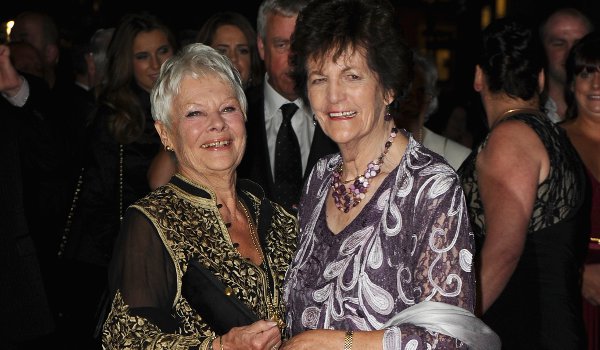Philomena
(BBC/ Baby Cow)
Director: Stephen Frears
Starring: Judi Dench Steve Coogan
★★★★ (out of five)
“WHY would any god give us desires and then punish us for not resisting them?” is one of the tricky moral questions raised in Stephen Frears’ Philomena, a film about one woman’s particular trauma but which also illuminates some universal truths.
Recounting real events, Philomena tells the story of Philomena Lee, an ordinary Irish woman living in England, who in 2004 set about tracing the son that was taken from her 50 years earlier at a convent in Tipperary.
Philomena (Judi Dench) is joined in the quest by high-ranking journalist Martin Sixsmith (Steve Coogan), a man with some niggles of his own, who’s been unceremoniously forced from a top government communications post. The pair make an unlikely but engaging duo, as both set out to reconcile a personal sense of injustice and find some kind of redemption.
Adapted from Sixsmith’s book The Lost Child of Philomena Lee, the movie comes to the screen mostly through Coogan’s inspiration. Coogan optioned the book in 2010, driven partly by his own Irish-Catholic background and partly by the story’s odd characteristic couple – working-class nurse, Oxbridge media figure.
He was also intrigued that the story moves from Ireland to America – “from the Old World to the New World.”
The old world Coogan reveals is Ireland during the 1950s, a milieu that’s almost medieval in its make-up, where anathema to sexual pleasure pervades, particularly regarding female desire. Sixsmith interviews one ageing nun who hails the sanctity of chastity and spits out the phrase “carnal incontinence”, as though sex were an act of diabolical nature.
But when the young, sexually-curious Philomena visits a fairground one night and meets a handsome devil, the carnivalesque mood causes her to lose restraint (and her toffee apple, literally), inevitably leaving her pregnant. At the convent where she gives birth, the agonies of labour are deemed God’s way of punishing sinners and mothers are discouraged from bonding too closely with their children. When a wealthy American couple arrive to adopt her young boy, Philomena isn’t even in the room when the deal is done.
 Dame Judi Dench (left) with the real-life Philomena Lee
Dame Judi Dench (left) with the real-life Philomena LeeThere are obvious parallels here with Peter Mullan’s Magdalene Sisters (2002) and Aisling Walsh’s Song For a Raggy Boy (2003), both exposing abuse within Church institutions.
But Philomena is more light-hearted in tone and broader in scope, showing the continuing affect of events decades after they occur. One of the nuanced complexities in Philomena’s story is her nagging guilt at having waited so long to acknowledge her missing son’s existence. “I did not abandon my child,” she forcefully avows to Sixsmith, though more in attempting to convince herself than him.
Yet Philomena isn’t alone in her ambivalence. Sixsmith, too, is spurred by a mixture of motives. Martin smarts from being isolated after losing his elevated status and his initial regard for a mere “human interest” story stems from having nothing much better to do. At times, he’s more concerned with pleasing his cynical editor (played by Coleraine-born Michelle Fairly), who demands more sensationalism for her readers than awkward emotional truths.
Credit the filmmakers for depicting the social suspicion between the two main characters, which enhances the narrative but isn’t tidily resolved. One exquisite exchange occurs when they board a luxury airline flight. Greenhorn Philomena is uncertain about drinking the complimentary champagne. “Go ahead, it’s free,” Sixsmith reassures her. “Oh!” she replies, “On Ryanair you have to pay for everything.”
Philomena exposes the arrogance of large institutions, showing both the Catholic Church in Ireland and the press in Britain as predators upon people’s misery.
One imagines that Coogan, a strong critic of press intrusion, is expressing some personal anger. Apart from the odd lapse into Alan-Partridge guise, he gives a sound performance as a man simmering with quiet fury. Dench, meanwhile, thoroughly convinces as a humble, everyday Irish mother.
A complex story, simply and effectively told.

